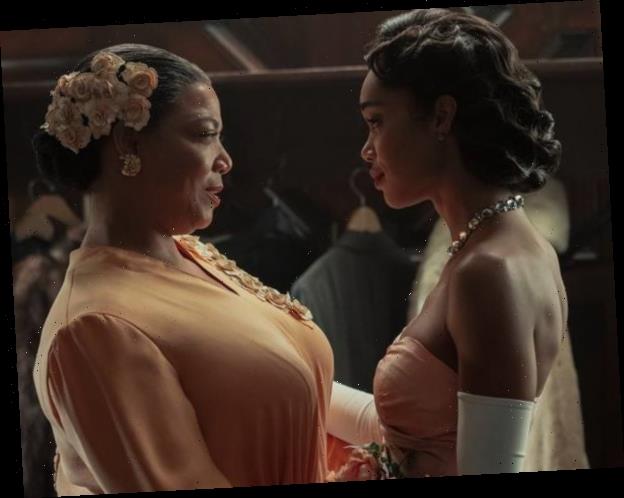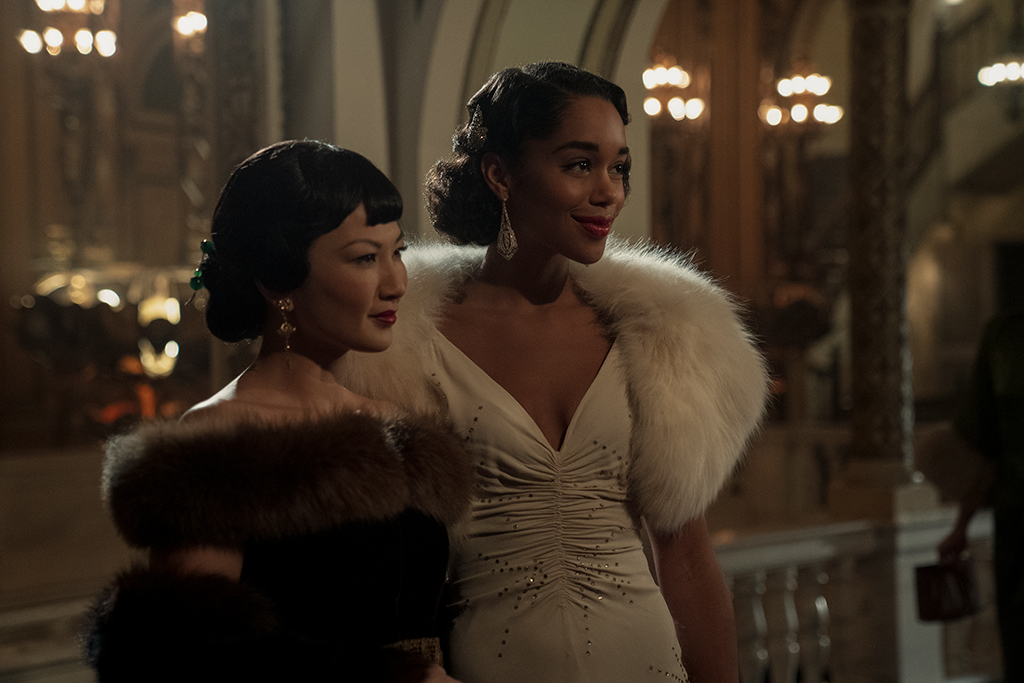
Netflix
In Ryan Murphy‘s Hollywood, the straight white male lead, played by David Corenswet, doesn’t get the typical showbiz happy ending. He doesn’t walk away with the trophy, it’s the underdogs that come out on top.
“It’s a wonderful universe to create. And I don’t know, I would say I write, not about the world that I live in, but the world I want to live in, and this is a world I wanted to live in,” Murphy said about Hollywood in a phone interview.
Hollywood, a seven-episode miniseries created by Murphy and Ian Brennan, follows a mix of actors, writers, producers and executives in the 1940s all trying to make it big in the business. There are actors playing real-life Hollywood figures, like Jack Picking as Rock Hudson and Jim Parsons as Henry Willson, mixed with fictional players like Darren Criss as Raymond Ainsley and Patti LuPone as Avis Amberg.
“This show started off in a very interesting way,” Murphy said.
Warning, spoilers for the limited series follow.
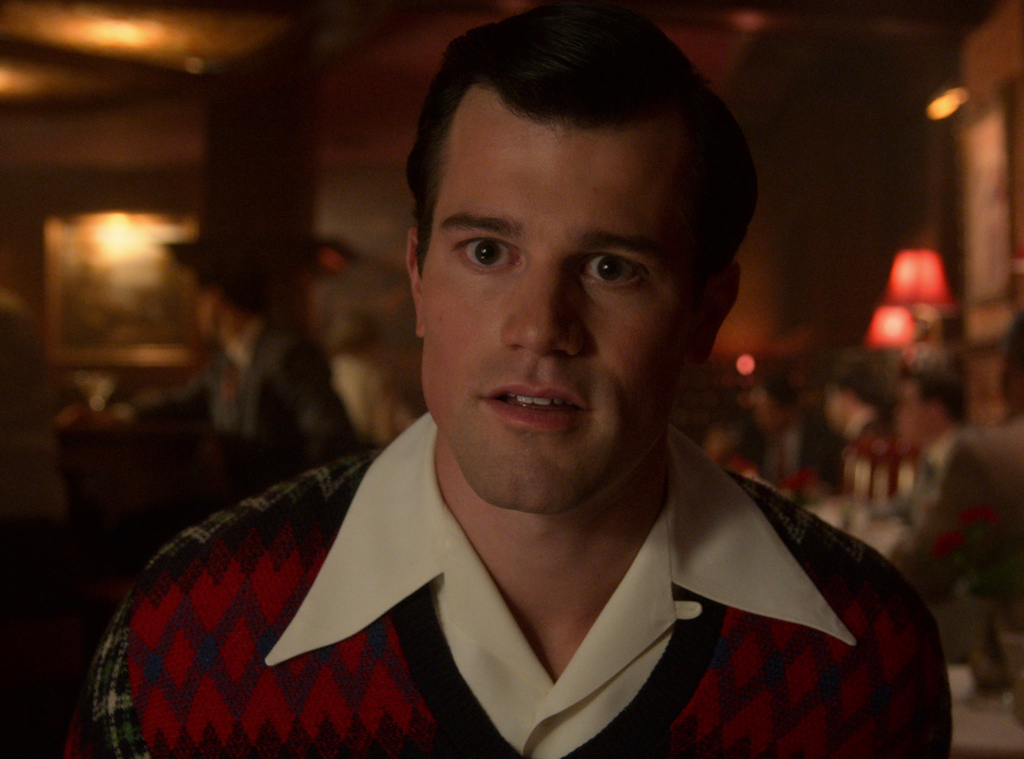
Netflix
Primarily raised by his film history buff of a grandmother, Murphy heard all kinds of tales of the rich and famous. “So, when I was growing up it was a big deal to me, my nana’s stories of Hollywood, and she always used to tell me that Rock Hudson was a poofter and gay,” he said. “I don’t know how she knew this in Indiana, where I grew up, but I was always like, ‘Oh!’ I was obviously a very young person, but I was like, ‘Oh, that’s somebody like me, but he kind of can’t be free.’ I was always very moved by him. And then when I was in college, he was the one of the first famous celebrity deaths from AIDS…I wanted to do a piece about the buried history of Hollywood. And after I did Feud, I just loved being in that world.”
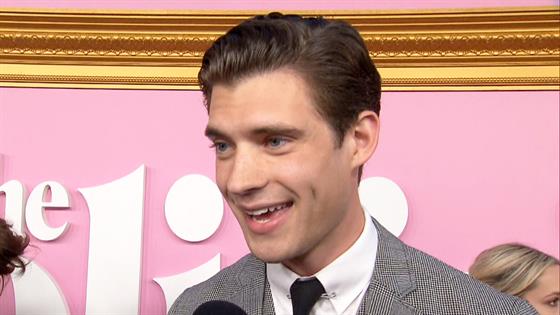
Feud: Bette and Joan tackled the rivalry between film stars Joan Crawford and Bette Davis, but Murphy said this time he wanted to touch on Anna May Wong, Hattie McDaniel and Rock Hudson, “the three people I was obsessed with growing up.”
“Those were the three that I was really interested in because I felt that their lives were sort of unseen and they didn’t get all of the acclaim and the awards and the roses that they should have had,” he explained. “And so, I thought, ‘Well, what would it be like if they got a happy ending?'”
The action follows the making of a movie, Meg, the creation of stars, and in the end, Murphy, Brennan, Janet Mock and Reilly Smith rewrite Hollywood history. A black woman, Laura Harrier‘s Camille Washington, ended up winning the Oscar for Best Actress, and Rock Hudson stepped out on the red carpet with his boyfriend, Archie (Jeremy Pope), all in the 1940s. Hollywood even rewrote history for Anna May Wong (played by Michelle Krusiec in the series), an actress who famously lost the role of an Asian woman to Luise Rainer, a white woman, who went on to win an Oscar for the part. In Hollywood, Anna May Wong won an Oscar for her part in Meg.
Murphy’s desire to explore buried Hollywood history “dovetailed with a conversation I had one night with Darren Criss right after all the [The Assassination of Gianni Versace: American Crime Story] stuff,” he explained, noting the two touched on a famous gas station in Hollywood that reportedly catered to the sexual desires of the rich and famous.
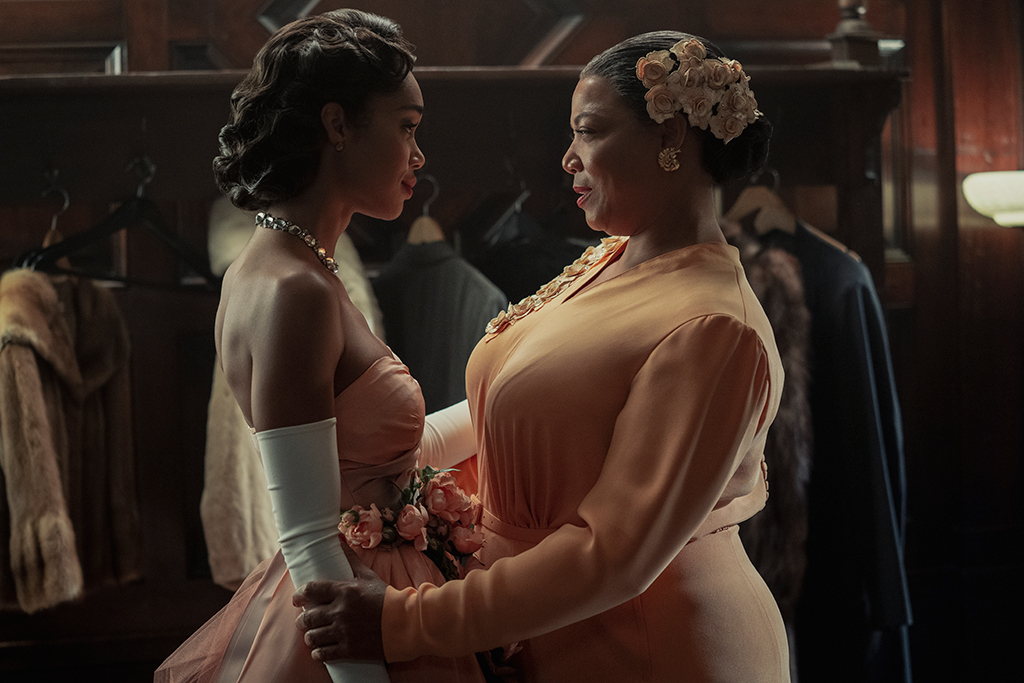
Netflix
Murphy said several scenes in the show got reaction off camera from the assembled cast and crew, namely when Rock Hudson left Henry Willson’s clutches and when Hattie McDaniel (Queen Latifah in the show) attended the Oscars to watch Camille win the award.
“It was a very emotional experience to make it because you felt, in many ways, this was our attempt to sort of right some wrongs. I just really believe that idea that if those people had been allowed to be who they were and be authentically themselves…If what had happened at the end of episode seven actually happened, I think our world would be a different place because I think Hollywood is a teacher, and Hollywood sort of set so many rules. How do we walk? How do we dress? How do we think? Who do we love? Who do we accept, who do we not? That’s a big part of this town, it was all just is very interesting,” he said.
Much of the issues explored in Hollywood are still at play in the industry in 2020. Murphy said he anticipates younger viewers will be outraged when they explore some of the real history depicted in the series, namely with Anna May Wong and Hattie McDaniel.
“I think this show shows how far we’ve come and how far we have to go. You have to remember not too long ago, Emma Stone was playing an Asian woman…And a lot of this show, our show, talks about the power of representation…[When] people who look like you and act like you and love like you are accepted and validated, you are accepted and validated because you can’t be what you can’t see. I always felt that way growing up, I felt like an alien because I didn’t have any role models,” Murphy said. “And if Rock Hudson could have been out and gay and successful in the 1970s, when I was a kid, it would have changed the path of my life, you know? I would not have felt so alone. I would not have felt so alone in my struggle. So, I think that’s a very powerful thing to do.”
Hollywood is now streaming on Netflix.
Source: Read Full Article
